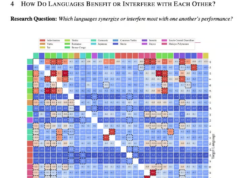Google Opens Project Fi to Everyone in U.S.
Google originally launched Project Fi in April, in collaboration with Sprint and T-Mobile. Instead of building out its own mobile infrastructure, Google is using the two carriers to provide cellular service to its customers.
Flexible Service and Simple Billing
The company is pushing two main selling points with Project Fi service: simple monthly billing and fast, flexible service. For example, the service switches between connecting through a Wi-Fi network or a cellular service, depending on which signal is stronger at the moment. According to Google, about 50 percent of Project Fi clients connect through Wi-Fi networks on a weekly basis.
Customers can also take their Project Fi phones with them while traveling overseas, and still pay the same price for data as if they were in the U.S. Cell coverage, meanwhile, costs 20 cents per minute while connecting through a mobile carrier and a variable rate when talking over a Wi-Fi connection, depending on the country.
Basic service through Project Fi costs $ 20 a month for talk, text, Wi-Fi tethering, and international coverage in more than 120 countries. Beyond that, Google charges a flat $ 10 per GB for cellular data, with credit for any unused data that you buy.
In addition to opening up the service to more devices and dropping the invitation-only requirement, Google said it would also be offering new Nexus 5X handsets for $ 199 for the next month to customers who buy and activate their phones through Project Fi.
Data Only Service
In addition to the phone service, Project Fi customers can also buy data-only SIM cards for use with other mobile devices, sharing the same data budgets as their phones. Customers can add up to nine data-only SIM cards to their accounts, and use the same SIM cards on multiple devices. However, users won’t be able to tether from devices using the data-only SIMs.
As with Project Fi’s phone plans, users are charged a flat $ 10/GB for data and the cost of any data they don’t use will be refunded to their accounts at a rate of one cent per unused megabyte. Like the voice and data plan, no service contract is required, and there is no additional cost for the data-only SIM card itself for existing Project Fi customers. According to the company, Project Fi customers are consuming an average of 1.6 GB of data per month.
Google is also pitching the advantages of portable numbers in a multi-device world. “With Project Fi, your phone number lives in the cloud, so you can talk and text with your number on just about any phone, tablet or laptop,” Nick Fox, Google’s VP of communications products, wrote in a blog post. “So the next time you misplace your phone, you can stay connected using another screen.”
Image Credit: Project Fi logo and screenshot via Google Project Fi website.





